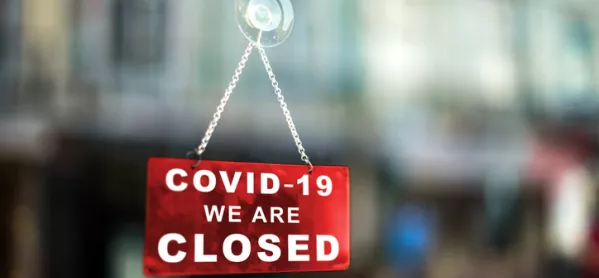All colleges should move learning online for the duration of the new lockdown, the University and College Union (UCU) has said.
On Saturday, prime minister Boris Johnson announced that England would go into national lockdown from Thursday until 2 December, and that all education settings, including colleges, must stay open.
Adult learning in lockdown: Stark inequalities revealed
Skills devolution: Give regions more for Covid recovery
Investigation: Only half of college hardship requests successful
UCU general secretary Jo Grady said that the prime minister was “gambling with the health of the nation” if he kept colleges open.
“We desperately need to lower the rate of transmission to protect the NHS, and SAGE [the government's Scientific Advisory Group for Emergencies] says that halting in-person teaching will help contain the virus," she said. "Half measures that keep campuses open do not represent a full lockdown.”
Coronavirus: Fears about keeping colleges open
She also called on the government to provide colleges with the funding and support to ensure that all students can learn remotely.
A Tes exclusive from earlier this year revealed that during the first lockdown, the Department for Education awarded colleges an extra £413,303 in hardship funding – less than half of the £886,847 requested.
Ms Grady said: “Teachers in further education moved mountains to create high-quality online delivery during the last lockdown, and stand ready to support students with high-quality remote learning again.
"But this time the government must match their commitment by providing the funding and support students need to learn remotely. During the last lockdown, it only gave students half the funding needed to learn online. It must not fail them this time.”
'Safety remains the overriding priority'
Bill Watkin, chief executive of the Sixth Form Colleges Association, said that decisions over the closure of college buildings are best made at a local level.
"Colleges should have the flexibility to tailor delivery based on the needs of their students and their local circumstances," he said. "Some will continue with face-to-face delivery for all students during lockdown; others will continue with, or move to, a blend of face-to-face and online delivery.
"These decisions are best made at a local level, informed by the government guidance, with college leaders balancing the needs of students, staff and the local community. Safety remains their overriding priority."
David Hughes, chief executive of the Association of Colleges, said that colleges need flexibility to reduce face-to-face teaching if necessary.
"Colleges want to offer their students as much face-to-face teaching as possible because more online will inevitably widen the learning gap between disadvantaged students and their peers," he said. "For many who already faced digital poverty and lack of access to learning resources, that gap will only get bigger – and it will potentially take years for them to catch up. We are still hopeful that government will provide more funding for colleges to support their students with devices."
He added that colleges are "deeply concerned about how disruption to teaching and learning will be taken into account in next year’s exams and assessments" and called on the Department for Education to provide clarity and reassurance to college leaders so that "they will be fully supported to make the best decisions for their staff and students within public health guidance".
A DfE spokesperson said: “Further education should continue as planned while national restrictions are in place. Providers have worked extremely hard to put in place measures to ensure that teaching and learning can be provided in a safe and Covid-secure environment. Many settings are already delivering a blended approach and they should continue to follow our guidance.”





